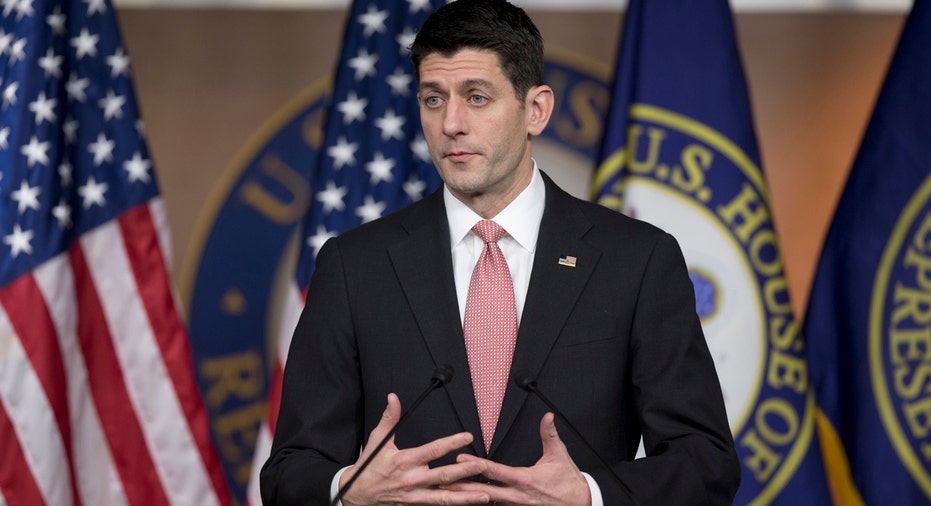Some U.S. House Republicans Doubtful Ahead of Vote to Begin Obamacare Repeal

The U.S. House of Representatives moved toward a Friday vote to begin dismantling Obamacare despite anxiety among some Republicans they were rushing into a major step without knowing the budget consequences or having a firm idea of how they would replace the healthcare law.
The Republican-led Congress, under pressure from President-elect Donald Trump to act quickly, made the first move toward scrapping Obamacare on Thursday as the Senate voted to instruct key committees to draft legislation to repeal it.
The House plans to vote on the measure on Friday, Speaker Paul Ryan said. Some Republican lawmakers said on Thursday they were not sure how they would vote.
"I don't want to vote for this and say it’s the first step (toward repeal), and find out that there are some long-term budget consequences," said Republican Representative Mark Amodei.
The nonpartisan Committee for a Responsible Federal Budget said earlier this month that repealing President Barack Obama's signature health insurance law in its entirety would cost roughly $350 billion over the next decade. Republicans say a good Obamacare replacement strategy would reduce government spending, but they have not agreed on a consensus plan.
Amodei said he was leaning for now toward voting for the Obamacare repeal resolution. But he added that "listening to the scuttlebutt on the floor ... as of right now, my impression is, they (House leadership) don't have the votes."
The fate of the Affordable Care Act, popularly known as Obamacare, is a high-stakes political showdown between Republicans and Democrats that potentially jeopardizes medical coverage for millions of Americans and risks causing chaos in the health insurance marketplace.
Democrats accused Republicans of rushing to scrap Obamacare, a law that has enabled up to 20 million previously uninsured Americans to obtain health coverage, without yet having a firm replacement plan. The Democrats say Obamacare has allowed growing numbers of Americans to get medical insurance and helped slow the rise in healthcare spending.
Republicans have called Obamacare federal government overreach and have sought to undermine it in Congress and the courts since it was passed by Democratic majorities in the House and Senate in 2010.
Trump, the Republican president-elect who takes office on Jan. 20, called Obamacare a "disaster" during his campaign and pledged to repeal and replace it.
'MAJOR CONCERNS'
Conservative Republicans as well as moderates expressed concern about launching a repeal before there is clarity about how to replace provisions of the complicated and far-reaching law.
Representative Mark Meadows, chairman of the conservative House Freedom Caucus, which has about 40 members, said they were undecided about how to vote.
Moderate Republican Representative Charlie Dent has "major concerns" about the process, according to a spokesman, fearing a repeal vote at the start diminishes the leverage that may be needed to get some lawmakers to back a replacement later.
The resolution passed by the Senate on Thursday instructs committees of the House and Senate to draft repeal legislation by Jan. 27. Both chambers will then need to approve the resulting legislation before any repeal goes into effect.
House Democratic leader Nancy Pelosi vowed to fight. "I think it's easier to win a fight when something is going to be taken away from you," Pelosi said in an appearance with elderly Americans who talked about how they had been helped by the law's provisions, including lower prescription drug costs.
Ryan said while Congress would take some replacement steps, the incoming Trump administration would be able to act on its own on some aspects, which he did not detail. Ryan said lawmakers were working on dismantling Obamacare "in sync" with Trump.
"We're not holding hard deadlines, only because we want to get it right," Ryan said.
Trump put new pressure on congressional Republicans on Wednesday when he said Obamacare repeal and replacement should happen "essentially simultaneously." An influential conservative group, Heritage Action, late on Wednesday pressed lawmakers to back the repeal resolution.
Trump senior adviser Kellyanne Conway said the replacement effort would likely tackle drug pricing.
(Reporting by Susan Cornwell; Additional reporting by Susan Heavey, Lisa Lambert and Richard Cowan; Editing by Will Dunham and Peter Cooney)



















